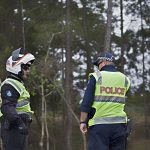Queensland Finally Abolishes the Gay Panic Defence

It’s actually happened. Queensland has abolished gay panic defence. The Criminal Law Amendment Bill 2016 was passed in state parliament on Tuesday night, amending section 304 of the state’s Criminal Code so that an unwanted sexual advance is no longer a provocation to kill somebody.
Officially known as the homosexual advancement defence, gay panic is a partial defence of provocation. It means that an accused murderer can claim that an unwanted sexual advance made by a person of the same sex caused them to temporarily lose control.
As Queensland attorney-general Yvette D’Ath pointed out, the terminology of the legislation was gender neutral, but it had been established through common law that unwanted gay advances could be used as a partial defence.
And when this has been argued in court cases in the past, it’s resulted in a charge of murder being reduced to manslaughter, and therefore the accused has been given a lighter sentence.
A rainbow revolution of changes
President of the LGBTI Legal Service Matilda Alexander said they were very excited about the outcome. “We’ve been campaigning this issue for a long time,” she said, adding that the LGBTIQ community will now “feel safer” that “legislative implications that might condone violence against” the community have been removed.
According to Ms Alexander, the amendment had been a “tricky issue,” as it was important to ensure that “vulnerable women” still had the right to defend themselves. And the legislation does still allow this under “exceptional circumstances.”
And as far as the broader impact, Ms Alexander said it sends a really clear message to the community that LGBTIQ people are equal. “Our rights to safety are important. And we should have equality in law.”
The solicitor also sung the praises of the current attorney-general Yvette D’Ath, saying that she’s heralded in a “rainbow revolution of changes” to Queensland’s laws, pointing to legalising same-sex adoption as one of those advances.
Inequality before the law
In 2008, in Queensland’s Maryborough region two separate incidents occurred where a man was beaten to death, and the gay panic defence was successfully argued in both court cases.
In July of that year, Jason Pearce and Richard Meerdink bashed Wayne Ruks and left him for dead in a churchyard. Pearce alleged that Ruks had made a sexual advance towards him. Both the accused were subsequently convicted of manslaughter, rather than murder.
In a separate case, John Peterson beat Stephen Ward to death for allegedly making a pass at him in August 2008. Along with Seamus Smith, Peterson dumped Ward’s body and left him to die. Peterson was convicted of manslaughter and Smith was found guilty as an accessory to manslaughter.
A priest’s crusade
The tragic death of Wayne Ruks prompted Father Paul Kelly in 2011 to begin a campaign to have gay panic defence abolished. Ruks was actually killed in the churchyard where the Catholic priest worked.
Mr Kelly started an online petition that garnered over 290,000 signatures, which he presented to the attorney-general on November 30 last year. The same day that Ms D’Ath introduced the amendment bill to parliament.
Father Kelly told Sydney Criminal Lawyers® that he’s really “very grateful” and relieved that the amendment has been passed. He added that he was exhausted, as “it’s been a long journey.”
On why it took so long for this defence to be repealed, he said he really didn’t know. When he first heard of the law he thought it was some antiquated piece of legislation that the politicians would revoke as soon as he began his campaign.
But instead he found “resistance from representatives from both sides of government.”
At first, he thought there must have been some reason besides bigotry behind the reluctance of politicians to change the law, but eventually he had to admit “there was a hang up there… inherent in both parties and that was exactly why this law was so damaging.”
“Most importantly,” the priest added, “it sends a message to the wider community from the legal and government circles that there’s no inherent policy that some members of society deserve less protection than others.”
Honour killings… really?
The partial defence of provocation hearkens back to 17th century Britain. A time when certain incidents could be perceived as a slight against a man’s honour.
Capital punishment was the mandatory sentence for a person convicted of murder back then. So the alternative verdict of manslaughter was devised, which allowed a judge to impose a punishment other than death, when a so-called honour killing had occurred.
Gay panic in Australia
The first time gay panic was successfully argued in Australia was in the 1992 Victorian case of R v Murley. However, legal commentators state that it was the 1997 case of Green v the Queen that established the defence in common law.
Tasmania abolished provocation as a defence to murder in 2003. Victoria and Western Australia followed suit soon after. The Northern Territory and the ACT have made amendments to the defence to exclude non-violent sexual advances.
And NSW passed the Crimes Amendment (Provocation) Bill in May 2014, removing non-violent sexual advances from provocation defence.
So what about South Australia?
South Australia is now the only jurisdiction in the country where you can continue to argue gay panic defence in a court of law. Michael Lindsay did in 2013, after he beat and stabbed Andrew Negre to death. However, a jury found him guilty of murder.
But then the High Court of Australia overturned the conviction and ordered a retrial. They found there had been a miscarriage of justice, as the original trial judge suggested to the jury that gay panic should no longer be permissible.
On September 2 last year, Mr Lindsay was sentenced to life imprisonment after being found guilty of murder again at his retrial.
A long-time advocate
South Australian Greens MLC Tammy Franks finds it embarrassing, offensive and “really sad” that gay panic is still a legal defence in her home state.
“We were the first state to decriminalise homosexuality. We’re going to be the last state to get rid of gay panic,” she said and added that she did have “faith” that the state would eventually abolish the antiquated law.
As for Queensland, Ms Franks said that it’s “fantastic to see Palaszczuk step up and get rid of gay panic,” putting it where it should be “in the dustbin of history.”
Ms Franks has been pushing for the abolition of gay panic defence in SA for years now. She first approached the attorney-general about it in 2012.
Since then, she’s introduced two private members’ bills into parliament to have the law changed. One was introduced in May last year, while a prior bill from May 2013 is now before a legislative review committee for the second time.
And as Ms Franks puts it, the current state Labor government have to do something about it, as they’re well aware it’s an issue. “They’ve said that they’ll address it. It’s 2017. Tasmania got rid of this law in 2003,” Ms Franks declared. “How long do people have to wait for equality?”







